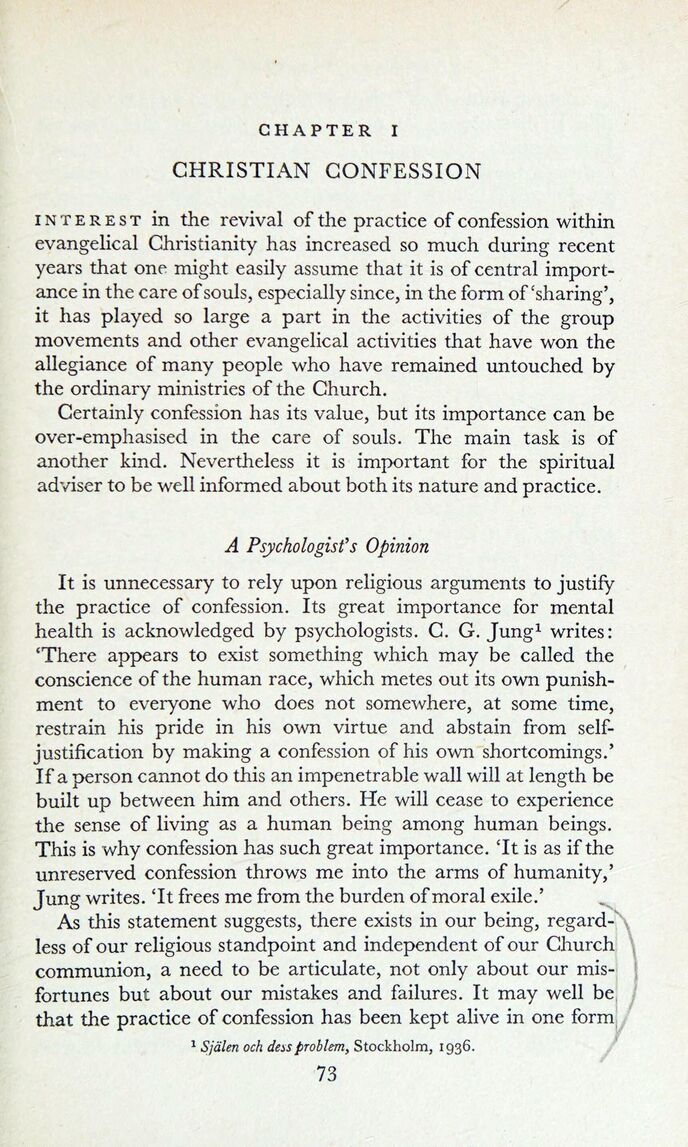
Full resolution (JPEG) - On this page / på denna sida - Part 2. Concerning Confession - 1. Christian Confession - A Psychologist's Opinion

<< prev. page << föreg. sida << >> nästa sida >> next page >>
Below is the raw OCR text
from the above scanned image.
Do you see an error? Proofread the page now!
Här nedan syns maskintolkade texten från faksimilbilden ovan.
Ser du något fel? Korrekturläs sidan nu!
This page has never been proofread. / Denna sida har aldrig korrekturlästs.
CHAPTER I
CHRISTIAN CONFESSION
INTEREST in the revival of the practice of confession within
evangelical Christianity has increased so much during recent
years that one might easily assume that it is of central
importance in the care of souls, especially since, in the form of ‘sharing’,
it has played so large a part in the activities of the group
movements and other evangelical activities that have won the
allegiance of many people who have remained untouched by
the ordinary ministries of the Church.
Certainly confession has its value, but its importance can be
over-emphasised in the care of souls. The main task is of
another kind. Nevertheless it is important for the spiritual
adviser to be well informed about both its nature and practice.
A Psychologist’s Opinion
It is unnecessary to rely upon religious arguments to justify
the practice of confession. Its great importance for mental
health is acknowledged by psychologists. C. G. Jung! writes:
“There appears to exist something which may be called the
conscience of the human race, which metes out its own
punishment to everyone who does not somewhere, at some time,
restrain his pride in his own virtue and abstain from
selfjustification by making a confession of his own shortcomings.’
If a person cannot do this an impenetrable wall will at length be
built up between him and others. He will cease to experience
the sense of living as a human being among human beings.
This is why confession has such great importance. ‘It is as if the
unreserved confession throws me into the arms of humanity,’
Jung writes. ‘It frees me from the burden of moral exile.’ -
As this statement suggests, there exists in our being,
regardless of our religious standpoint and independent of our Church `
communion, a need to be articulate, not only about our
misfortunes but about our mistakes and failures. It may well be, |
that the practice of confession has been kept alive in one form /
1 Själen och dess problem, Stockholm, 1936. ;
73
<< prev. page << föreg. sida << >> nästa sida >> next page >>